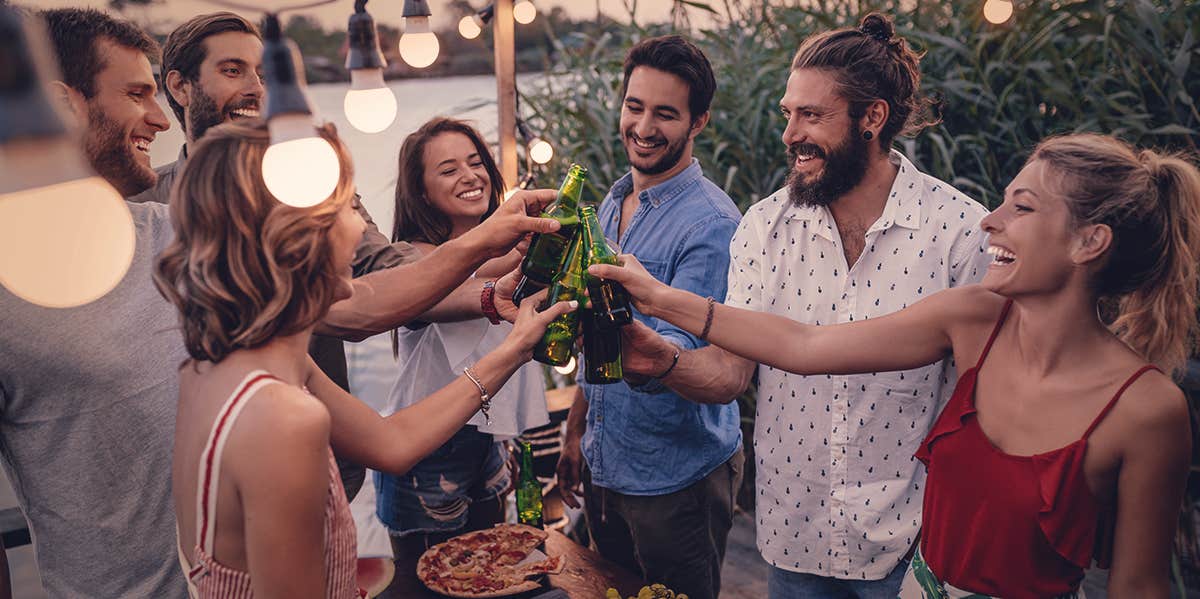The Extremely Strange Way I Finally Overcame Severe Social Anxiety
How I went from "no one will ever like me" to "I can talk to anyone."
 LStockStudio / Shutterstock
LStockStudio / Shutterstock My lungs were desperate for air as the bully — a kid a few sizes bigger than me — sat on my chest and laughed.
All I could think was: "I can't breathe."
That humiliating moment marked the start of a decade of being bullied, taunted, jeered at, and pushed aside.
The same suffocation would seep into my mind, staining every social interaction. Whenever I met someone new, I bounced between "will they like me?", "they don't like me" and "no one will ever like me."
And when I got a scholarship to study in Canada, my anxiety hit an all-time high.
Being the only non-Canadian in my university residence, I was lonely, and I was desperate to make friends.
But my social fears — along with my thick Malaysian accent — kept me stuck in a hell-like loop of awkward conversations and shallow friendships. Until I came across a photojournalism project online.
It was called Humans Of New York, and the founder, Brandon Stanton, would interview strangers on the streets, capturing their portraits as well as their life stories — some of the most vulnerable, emotional stories I'd ever read.
What he did completely blew my mind. I thought to myself:
"Wait… you can actually walk up to someone and talk to them? And get them to share their life story with you??"
Scared, but feeling inspired enough, I took a deep breath and grabbed my camera, and walked out to the street.
After passing by —I mean, avoiding— one stranger after another, I finally decided on my first interview subject: a bespectacled, bearded guy who seemed friendly enough.
Despite my jitters, we had an OK conversation, which gave me enough motivation to interview another stranger the next day … and the day after.
As I interviewed more and more strangers, I started getting confident in myself, and my Humans Of Sackville project attracted a flurry of followers and media features.
After having hundreds of conversations and building dozens of meaningful relationships, I've overcome the worst of my social anxiety.
And here are five things I learned after talking with more than 700 people:
1. Most people get nervous in social situations, too
When I was stuck in my loop of anxiety, all I focused on was myself and the thoughts in my mind. I assumed that others were way more confident. But when I took on the interviewer role, I saw how people got uncomfortable under the spotlight and stumbled through their answers. Many were just as anxious as me.
This realization helped me accept my anxiety and also connect with others, which leads me to my next point.
2. Everyone has an interesting story to tell
While there were a few duds, most of my interviewees turned out to be fascinating — whether it was a life challenge they overcame or an exciting project they were working on. For example, I met a gang-member-turned-forest-technologist — who knew!?
My curiosity turned out to be a powerful antidote to my anxiety. When my curiosity surged, my anxiety subsided. I was so interested in learning about the other person that my fear was no longer a barrier.
3. Starting a conversation is easier than you think
At first, I was obsessed with funny conversation starters and deep questions. Because I was trying so hard to say the right thing, I felt way more nervous, and my mind even drew blanks! And here's the thing: even when I led with my most creative conversation starter, the other person wasn't always receptive. After much trial and error, I had a counterintuitive insight.
You don't need to be a master conversationalist to have a great conversation. You just need to say "hi" and be friendly. After all, most people just need to know that a) you're interested in talking, and b) you aren't creepy or dangerous (this is why smiling is so important in sparking conversations!)
4. Listening is way more important than talking
While I understood the importance of listening — you know, the cliche of "listen more than you talk" — I only came to appreciate this skill when connecting with strangers. More often than not, by simply asking why or how I was able to get a stranger to share a lot more than expected.
By listening — rather than worrying about what to say next — you can tune into what they care about or don't, and that helps you ask relevant questions and keep them engaged.
5. Rejection is a part of the connection
Ultimately, I learned that you can't separate rejection from the connection. While skill and experience will make social situations easier, you can't eliminate the risk of rejection. Unless you actually talk with someone, you won't know if they'll be open to a conversation or not.
As painful as it can be, getting a "no" is way better than unintentionally losing the possibility of a meaningful conversation and relationship. I wouldn't have gotten to know some of my best friends otherwise!
Over the past Christmas break, I was talking with A.K., a close friend from Toronto, and it occurred to me that we've known each other for close to ten years … and it all started with that chance encounter at a cafe.
That is the magic of connection. I hope you are able to find it too on your journey of overcoming social anxiety.
Ian Chew is the founder of Deeper Conversations. He has been featured by top media outlets like CBC, Inc. Magazine, and TEDx.

